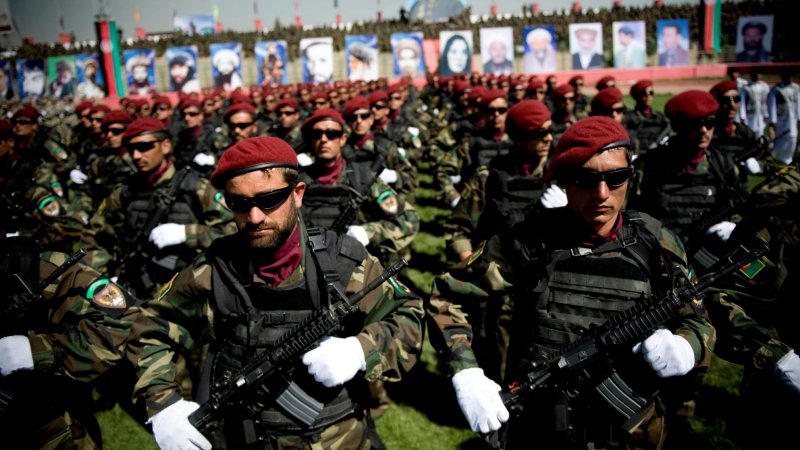Afghan National Army (ANA) soldiers stand alert during a ceremony including the parade of the Afghan military to commemorate the 1992 toppling of a Soviet-backed regime in Kabul on April 28, 2010. Afghanistan on Wednesday commemorated the 1992 toppling of a Soviet-backed regime, which led to bloody civil war and arguably to the rise of the Taliban, as the capital Kabul went under security lockdown. Helicopter gunships clattered overhead as the Afghan army staged a 21-gun salute at a sports stadium in central Kabul, used as a public execution ground by the 1996-2001 Taliban regime that emerged from the devastating civil war. UPI/Hossein Fatemi |
License Photo
KABUL, Afghanistan, Oct. 16 (UPI) -- Recruiting and retention problems within the Afghan military are endangering the timetable for withdrawal of U.S. and Western troops, military authorities say.
About a third of the Afghan army is lost each year to desertion and low re-enlistment rates, The New York Times reported Monday.
Recruitment is actually ahead of schedule; the army reached its full authorized strength of 195,000 soldiers in June, three months ahead of schedule. However, there are no units American forces believe are able to operate without NATO assistance.
The desertion rate in the Afghan army is 7 percent to 10 percent, said Brig. Gen. Dawlat Waziri, a spokesman for the Afghan Defense Ministry. Pay for soldiers who agree to re-enlist has gotten better, but only about 75 percent sign up for three more years of service.
Between desertions and soldiers who don't re-enlist, about a third of the Afghan army consists of new recruits at any time.
Complicating recruitment is the additional vetting that's been instituted since the recent attacks on Western soldiers by members of the Afghan military.
Deserters cite a number of reasons for leaving before their enlistments are up: corruption among officers, poor food and equipment, and Taliban intimidation of their families.
Most importantly, however, they say they leave because they don't believe the army can fight the insurgents once the American military pulls out in 2014.















